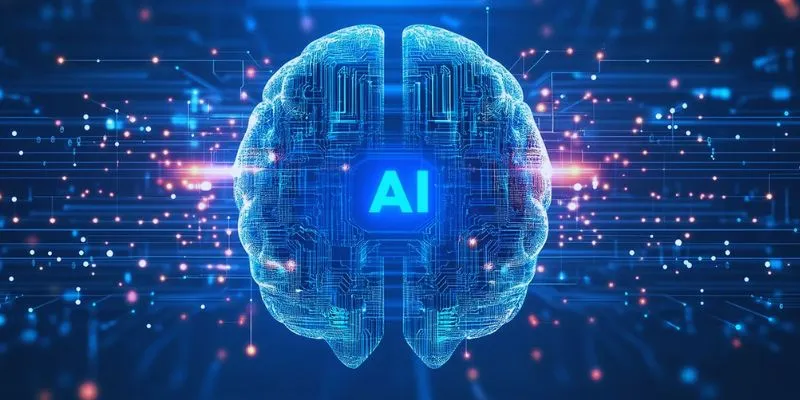Artificial intelligence (AI) is rapidly transforming our daily lives and work environments, finding applications in numerous fields. At the heart of AI’s functionality is big data, which enables AI systems to learn, adapt, and improve over time. Big data consists of vast amounts of information that AI uses to identify patterns, make predictions, and automate tasks. Regardless of AI’s current capabilities, these advancements would not be possible without big data. This guide explores the crucial role big data plays in the evolution of AI. By understanding this connection, we can better appreciate AI’s future potential.
What is Big Data?
In computing, “big data” refers to the enormous volume of information generated from diverse sources, such as social media, sensors, devices, and various interactions. This data is too extensive and complex for traditional processing methods. It is characterized by three main features:
- Volume : The sheer amount of data generated daily.
- Variety : The diversity of data types, including text, images, and videos.
- Velocity : The speed at which data is collected and processed.
These extensive datasets provide valuable insights that enhance decision- making, trend prediction, and process automation.
The Role of Big Data in AI
Big data is integral to training AI systems. The primary function of AI, particularly machine learning (ML), is to learn patterns from data. With large datasets, AI algorithms can be trained to detect trends, forecast outcomes, and enhance their performance over time.
For instance, in machine learning, a model is trained on extensive data sets to make precise predictions or classifications. The more data available to AI, the better it can refine its understanding and accuracy. Big data empowers AI to tackle complex tasks that might be challenging or time-consuming for humans.
How Big Data Improves AI Accuracy

AI systems learn from data, and their accuracy largely depends on the quality and quantity of the data they are trained on. Big data enhances AI accuracy in several ways:
- Better Training Data : Larger datasets allow AI to recognize more patterns and nuances, reducing errors and increasing its ability to make accurate decisions.
- Handling Variability : Big data encompasses various sources and types of information. By utilizing diverse data, AI can better manage different situations and adapt to new scenarios.
- Continuous Learning : As more data becomes available, AI can continually improve its predictions. This process, known as continuous learning, helps AI systems stay current with evolving trends and new information.
In essence, big data enables AI systems to refine their algorithms and make better decisions over time.
The Impact of Big Data on AI’s Efficiency
Big data is also crucial for enhancing the efficiency of AI systems. AI must process large volumes of data quickly to make real-time decisions, and big data technologies facilitate this:
- Faster Data Processing : Modern AI systems rely on big data tools for rapid information processing. Technologies like cloud computing and distributed computing allow AI to access and analyze large datasets swiftly.
- Automation : AI can automate repetitive tasks by analyzing big data. For example, in healthcare, AI can process patient records and automatically suggest treatment options, reducing the need for human intervention.
- Optimizing Processes : Big data helps AI systems optimize processes by identifying inefficiencies and suggesting improvements. This is particularly valuable in industries like manufacturing, where AI can use data to streamline production and reduce waste.
By processing data efficiently, AI can deliver faster and more accurate results.
Big Data and AI in Various Industries
Big data is revolutionizing various industries by enhancing AI system performance. Here are a few sectors where big data is making a significant impact:
- Healthcare : AI-driven diagnostic tools utilize big data to analyze patient records and medical images, aiding doctors in making quicker and more accurate diagnoses.
- Finance : In finance, AI employs big data to detect fraud, assess credit risk, and predict market trends.
- Retail : Retailers leverage AI to analyze consumer behavior data, enabling personalized recommendations and targeted marketing campaigns.
- Transportation : Self-driving cars rely on big data to safely navigate roads by analyzing traffic patterns, road conditions, and other variables in real-time.
In each of these industries, big data enhances AI’s ability to make intelligent decisions, automate processes, and provide valuable insights.
Big Data Challenges in AI

While big data is crucial for AI , it presents several challenges:
- Data Privacy : Collecting and analyzing large amounts of personal data raises privacy concerns. Organizations must comply with data protection regulations and safeguard sensitive information.
- Data Quality : Not all data is valuable. Poor-quality or incomplete data can lead to inaccurate AI predictions. Ensuring data quality is essential for AI systems to perform well.
- Data Integration : Big data originates from multiple sources, making integration into a unified system complex. AI systems must process data from diverse sources efficiently to derive meaningful insights.
Addressing these challenges is key to maximizing the benefits of big data while maintaining ethical standards.
Conclusion
In conclusion, big data is fundamental to AI’s success and growth. It provides the essential raw material for AI systems to learn, improve, and make intelligent decisions. With vast amounts of data, AI can achieve higher levels of accuracy, efficiency, and adaptability. As technology advances and more data becomes available, the relationship between big data and AI will only strengthen. Understanding the importance of big data in AI is crucial for anyone interested in the future of artificial intelligence and its potential impact across various industries.
 zfn9
zfn9






















